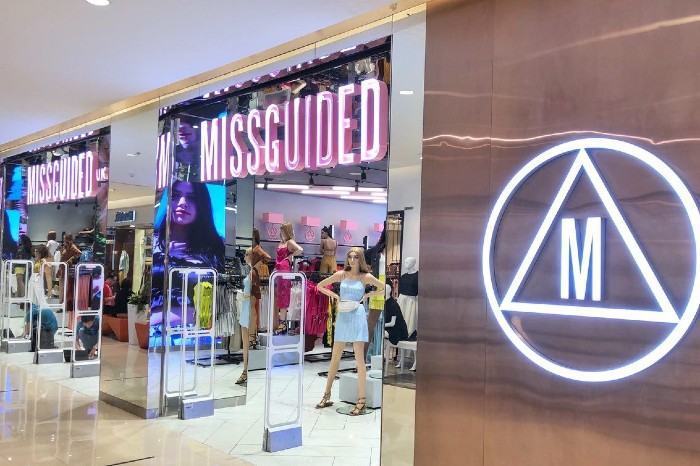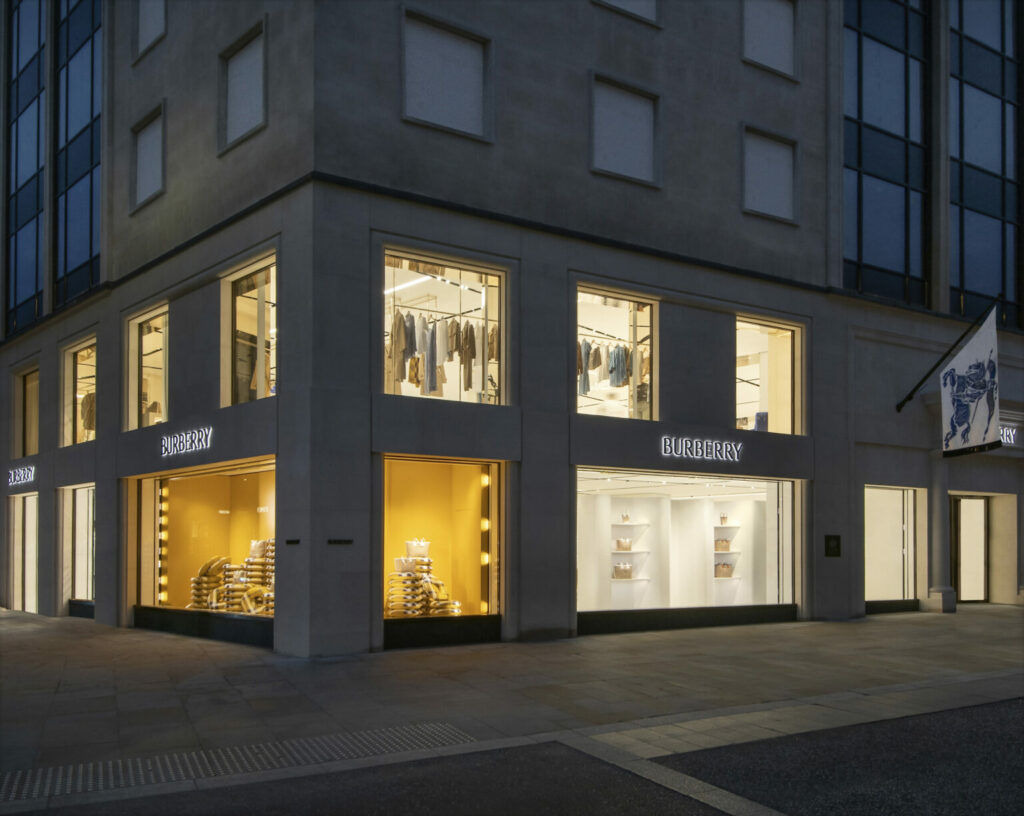Missguided was once a star of the online fashion world. However, despite shoppers increasingly gravitating online during pandemic, the etailer’s light has been dramatically dimmed in recent years and earlier this week the retailer collapsed into administration.
The writing has been on the wall for some time. Late last year the retailer sought emergency funding to keep the lights on and was forced to sell a 50% stake in the firm to Alteri, an investor that specialises in distressed businesses.
Just months later, the retailer has called in advisers Teneo to explore options for the retailer as founder Nitin Passi steps down as chief executive. However, efforts to find a buyer failed and yesterday Teneo was appointed as administrator.
Missguided may be down but it’s not out as Sports Direct-owner Frasers Group revealed it had bought the retailer out of administration for £20million.
But what went wrong at Missguided and can it find a new direction?
Missguided has had its ups and downs in recent years. In fact, in its year to March 2018, it made a £26.5m EBITDA loss before exceptionals.
Passi admitted at the time that he didn’t know if he had enough money to run the business or pay employees.
He told Drapers: “All our wounds were self-inflicted. For me, it was a very humbling experience.” He blames “poor control” for a situation that led things to spiral.
“I put a big team around me, I put a lot of expense in the business. We consumed too much cash too quickly and we didn’t have the right people in the right roles.”
“Missguided made some big missteps,” says one fashion executive tells Retail Gazette. “Opening stores was a big mistake. I know some of its online competitors were shocked it was doing it.”
Passi took action to get it back on track. He closed the two flagship stores he had opened, cut back on marketing spend, made more than 15% of its staff redundant, and shortened product lead time to better compete with fast fashion rivals.
The initiatives seemed to have worked. In its last reported financial year to March 2020, sales were up 8% to £202 million, although profits went back slightly. It made £2.1 million EBITDA and a £5.2 million operating loss, down from £3.6 million the prior year.
Then the pandemic hit. Although sales soared for Missguided, growing 50% to £300 million in the year to March 2021, so did costs.
Financial results are yet to be filed for the year so it is unclear what the true impact to Missguided’s bottom line was but it had warned that EBITDA would be “below expectations” due to increased distribution costs.
Passi has said that air and sea freight rates have been “astronomical” and up to 10 times higher than they usually are.
These costs have continued to rocket.
The fashion executive says Missguided would have been particularly hard hit as it is not as operationally efficient as rivals such as Boohoo.
“Missguided were all about building the brand with big ad campaigns and collaborations, however, Boohoo have really focused on the operations. Boohoo is a really efficient machine, much more so than Missguided,” he says.
However, soaring shipping costs have even impacted Boohoo. Just this week the etail group revealed its full-year profits nosedived 94% on a pre-tax basis due to “significantly increased logistics costs”. Pre-tax profits plunged to £7.8 million, down from £124.7 million the prior year.
Meanwhile, Asos fell into operating losses in its first half to 28 February due to supply chain disruption, from a £109 million profit the prior year.
Missguided’s balance sheet was nowhere near as strong as those two online Goliath’s which can absorb the losses.
Which it was why it turned to Alteri in December to give it liquity to trade through the supply chain disruption.
Falling behind Boohoo
However, Missguided’s woes run deeper than just the supply chain crisis. Over recent years, it has paled in comparison to its Manchester rival Boohoo and its stablemate Pretty Little Thing.

Catherine Shuttleworth, chief executive and founder of Savvy Marketing, blames Missguided’s downfall on a lack of spend on marketing, which was one of the areas Passi admitted to cutting back on to get the business back on track.
“Missguided has been outspent,” she argues. “It’s competitors have spent more on marketing. It doesn’t appear as innovative as its rivals.”
GlobalData analyst Darcey Jupp agrees and adds that Missguided’s lack of high-profile celebrity collaborations contributed to the brand losing the attention of young shoppers in the UK fast fashion market.
“Missguided has found itself in troubled waters in recent times, losing competitiveness versus its key rivals: PrettyLittleThing and Boohoo,” she tells Retail Gazette.
“While many UK pureplays have struggled to continue their pandemic momentum in 2021 as in-person shopping returned, Missguided seems to have slipped further than most.”
Jupp is right. The reopening of shops has of course stemmed the growth etailers experienced during lockdown. So, as shipping costs have been spiking, growth would have been levelling out at Missguided.
Shuttleworth also points out that due to the rise in the cost of living, consumers are rethinking how to spend their money. She says that people are going out less since the pandemic hit, even since restrictions have been lifted, so when they tend to buy new going out clothes they spend more. “When they do go out, they do it big,” she says.
This could have hindered Missguided’s growth in recent times, but Shuttleworth says this could also be an opportunity for the fast fashion firm going forward.
What measures have been taken?
Since Alteri bought into the retailer in December, it has sought to improve Missguided’s operations.
The business has reported making “good operational progress in recent months”. It has focused on a number of areas, addressing stock issues, streamlining warehouse operations and reducing head office costs.
Redundancies have been made. It had warned that 140 jobs were at risk earlier this year, but following a consultation and measures such as redeployment and voluntary redundancies, that number has been reduced to just over 60.
Missguided chair Ian Gray says: “Missguided has made substantial operational progress since receiving new investment at the end of 2021, placing us on a sounder footing in a very short space of time and I want to thank everyone for their hard work.
“That work means we’re now in a position to accelerate plans to explore strategic options for the business.”
What next for Missguided?
Frasers Group, the renamed Sports Direct Group, may have its critics but it runs an efficient retail machine.
Although it plans to run Missguided as a stand-alone business, Frasers Group CEO Michael Murray said that Missguided would benefit from “the strength and scale of Fraser Group’s platform and our operational excellence”.
“Missguided’s digital-first approach to the latest trends in women’s fashion will bring additional expertise to the wider Frasers Group,” he said.
Catherine Erdly, founder of consultancy The Resilient Retail Club, says Missguided’s buyer needs to give it a for a fresh start, and will “preferably someone with deep pockets”.
But what needs to happen to get Missguided back on track?
Operational progress needs to continue to help it navigate the current distribution challenge.
However, fundamentally Shuttleworth believes Missguided needs to work out exactly what it’s USP is and how it is going to stand out in the crowded fast fashion market. “What Missguided will need is a clear identity, and something that gives customers a reason to come to them instead of Asos or Boohoo or Shein,” she says.
She also believes it needs to spend on marketing to gain attention in this competitive market.
Mike Ashley may have to dig deep into pockets to get this former etail star shining again.
Click here to sign up to Retail Gazette‘s free daily email newsletter

















